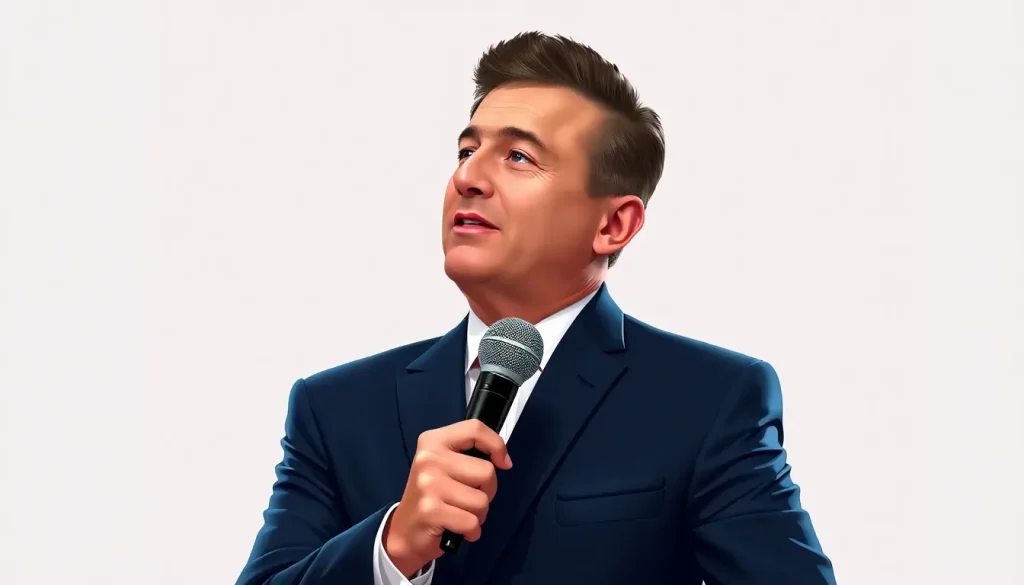Sinclair fails to get requests but reinstates Jimmy Kimmel

In a surprising turn of events, Sinclair Broadcast Group has decided to reinstate Jimmy Kimmel Live! on its ABC affiliates, marking a significant development in the ongoing tension between local broadcasters and high-profile networks. This decision comes after Sinclair's previous stance to preempt Kimmel due to perceived bias, and it reflects broader issues surrounding media control and free speech in broadcasting.
The situation has captured the attention of media analysts and political figures alike, raising questions about the autonomy of broadcasting companies in the face of political pressures. In the following sections, we will explore the implications of Sinclair's decision, the requests made to ABC, and the political landscape surrounding this controversy.
Sinclair's Reinstatement of Jimmy Kimmel Live!
Sinclair Broadcast Group has announced that it will resume airing Jimmy Kimmel Live! on its ABC affiliate stations starting September 23, 2025. This decision comes despite the fact that Sinclair's requests for an ombudsman and other accountability measures have not been met by ABC and its parent company, Disney.
Sinclair's preemption of Kimmel's show was initially justified by the company as a move independent of government influence, even as FCC Chairman Brendan Carr publicly urged station owners to consider the consequences of airing Kimmel's content. Sinclair had previously declared that it would not air Kimmel's show until formal discussions with ABC regarding professionalism and accountability took place.
Interestingly, Sinclair had also proposed to air a special program in honor of conservative commentator Charlie Kirk during Kimmel's time slot but later opted to distribute the content on YouTube instead. This back-and-forth highlights the complexities and rapid shifts in the media landscape.
Ombudsman and Other Requests “Not Yet Adopted”
In a statement regarding its discussions with ABC, Sinclair expressed disappointment that none of its proposed measures have been implemented. The company had pushed for several initiatives aimed at strengthening accountability, viewer feedback, and community dialogue, including the establishment of a network-wide independent ombudsman.
“In our ongoing and constructive discussions with ABC, Sinclair proposed measures to strengthen accountability, viewer feedback, and community dialogue, including a network-wide independent ombudsman. These proposals were suggested as collaborative efforts between the ABC affiliates and the ABC network.”
Sinclair's request for an ombudsman echoes similar moves within the industry, as seen in past instances where the FCC required networks to adopt measures for transparency in exchange for regulatory approvals. Such requests illustrate ongoing tensions between local broadcasters and national networks, as many affiliates seek greater autonomy and accountability in programming decisions.
The Impact of Preemptions on Viewership
The preemption of Jimmy Kimmel Live! by Sinclair and other broadcasters like Nexstar has significant implications for viewership across the country. Kimmel himself noted that due to these preemptions, his show was not being aired in roughly 20% of the United States.
- Sinclair operates 38 ABC affiliate stations.
- Nexstar has 28 ABC affiliates and has not specified when it will cease preemptions.
- Kimmel's return comes after heated discussions involving FCC policies and the role of local broadcasters in national programming.
Nexstar has indicated that it will continue to preempt Kimmel until it can ensure that all parties are committed to fostering an environment of respectful and constructive dialogue. This statement reflects the delicate balance broadcasters must navigate between local interests and national programming pressures.
Political Reactions and Implications
The controversy surrounding Sinclair's preemption of Kimmel has drawn attention from various political figures, including Senator Bernie Sanders, who urged Nexstar to restore Kimmel's show to viewers. He remarked that decisions about what Americans watch should not be dictated by political pressure, emphasizing the need for broadcasters to maintain editorial independence.
Criticism of FCC Chairman Brendan Carr has also emerged from both sides of the political aisle. Figures like Senator Rand Paul have condemned Carr's threats towards broadcasters as inappropriate, while others have likened his tactics to those of a mobster. This backlash underscores the growing concern over governmental influence in media and the potential repercussions for freedom of speech.
Free Speech and the Future of Broadcasting
The debate surrounding the preemption of Jimmy Kimmel Live! raises important questions about the role of free speech in broadcasting. Sinclair's assertion that its decisions are based on judgment regarding programming content highlights an ongoing tension between content control and the rights of broadcasters.
- Sinclair maintains that free speech gives broadcasters the right to make independent programming decisions.
- Critics argue that such decisions can stifle diverse viewpoints and limit audience access to a range of opinions.
- The role of the FCC in regulating content and enforcing fairness in broadcasting remains a contentious issue.
The unfolding events surrounding Sinclair and Kimmel exemplify the complex relationships between media corporations, regulatory bodies, and the political landscape. As broadcasters navigate these challenges, the future of programming and viewer access remains uncertain.
For those interested in a visual recap of the situation, you can watch a related video that discusses Sinclair's decision-making process and its implications for broadcasting:
As Kimmel returns to the airwaves, the implications of this controversy will likely ripple through the industry, influencing not only how local affiliates operate but also how content is regulated at the national level. The clash between Sinclair and ABC serves as a microcosm of the broader debates surrounding media freedom, political influence, and the responsibilities of broadcasters in presenting diverse viewpoints to their audiences.




Leave a Reply